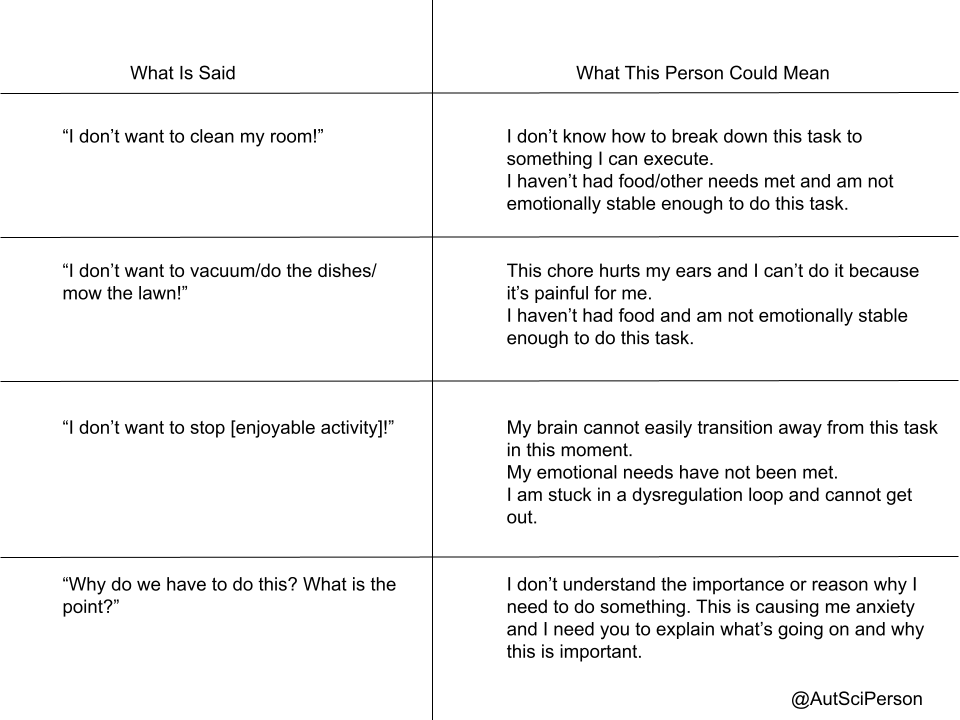
Autistic kids who are "high achievers" (i.e. get good grades in school) are often seen by adults as more mature/loser to adults.
There are a few reasons for that. They may -
like talking to adults more than peers
like to talk intensely about topics
Have interesting insights 1/11
There are a few reasons for that. They may -
like talking to adults more than peers
like to talk intensely about topics
Have interesting insights 1/11
They may even prefer talking to teachers rather than students.
They may not like the sensory overwhelm of other students around them.
They may think about life more abstractly or seem to talk about "more mature" topics than peers. 2/11
They may not like the sensory overwhelm of other students around them.
They may think about life more abstractly or seem to talk about "more mature" topics than peers. 2/11
They also probably notice adults around them treating them more like an adult because of how they act.
They may also want to people-please especially with adults and seek validation, so they may seem more "well-behaved" but that's actually from anxiety. 3/11
They may also want to people-please especially with adults and seek validation, so they may seem more "well-behaved" but that's actually from anxiety. 3/11
They may even see themselves as more adult-like and therefore want to be treated like an adult.
Here's where this starts to break down:
That same autistic kid could also be completely dissociated from themselves and their emotions. They have no idea what they're feeling. 4/11
Here's where this starts to break down:
That same autistic kid could also be completely dissociated from themselves and their emotions. They have no idea what they're feeling. 4/11
They have no idea when they are hungry or thirsty. They have no idea when they start feeling bad. And this is why so often people say autistic kids go from 0 to 100 instantly.
If they don't know their experiencing anxiety, they're not going to "show" it. 5/11
If they don't know their experiencing anxiety, they're not going to "show" it. 5/11
So while this autistic kid may seem "mature" and "wise" and "adult-like" - what they need is adults who, potentially through some rough trial and error, figure out when they need to eat, and how much sleep they need to be good in the morning and anything else they need. 6/11
It is ironic to me how so many, especially highly speaking, autistic kids are seen as adults and may even feel like their an adult (I know I did), and want to be treated like an adult,
when there is a huge disconnect with their emotional recognition and understanding. 7/11
when there is a huge disconnect with their emotional recognition and understanding. 7/11
Just because an autistic kid has really good insights & gets good grades doesn't mean they don't need help to know when to eat or that they should get up to go to the bathroom. It's easy to think that kid doesn't need support, but they need more because they have no roadmap 8/11
They don't even have an idea of what they need. They don't know what is going to help them regulate their emotions and their body generally. They are completely engrossed in the fawning response and making sure no one worries about them or feels bad. 9/11
I don't have the vocabulary or insight to really write about where this fawning comes from, whether it's often a trauma response, or rooted in hyperempathy, or rooted in anxiety and therefore projecting negative emotions onto others. I really don't know. 10/11
But I do know that those "good students" & "wise" autistic kids truly need a massive amount of help to even attempt to connect to their bodies to figure out what it needs. It's amazing how much anxiety I lived with growing up without even knowing about it. It's terrifying. 11/11
*mature/wiser to adults.
To sum up -
If you think an autistic kid doesn't need help or support -
They are probably trying really hard to make you think that they don't need help or support. And are struggling.
If you think an autistic kid doesn't need help or support -
They are probably trying really hard to make you think that they don't need help or support. And are struggling.
Also, if you want to see a real life example of this, I highly highly recommend watching I Am Greta on hulu.
• • •
Missing some Tweet in this thread? You can try to
force a refresh




